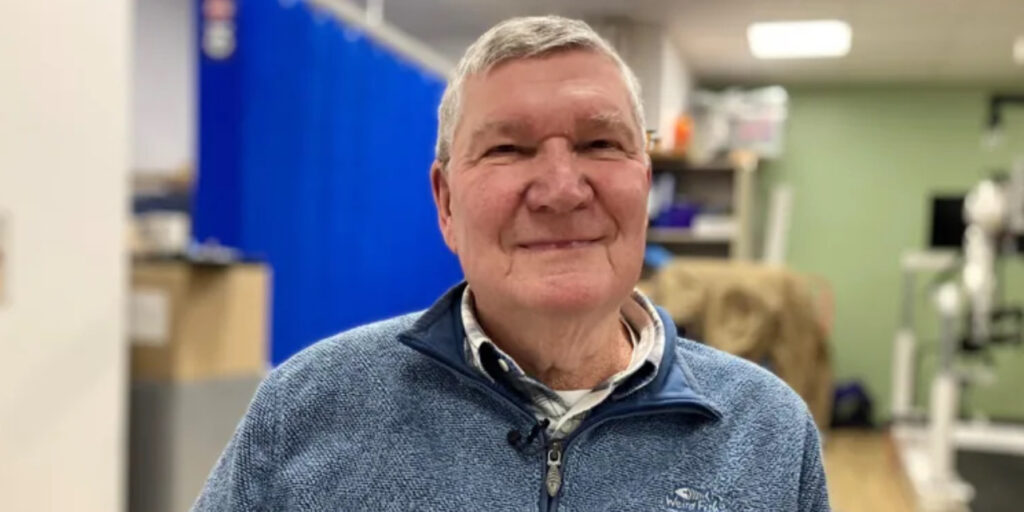Stroke survivors in Dorset are being offered the chance to take part in a revolutionary clinical trial aimed at improving arm and hand function using wearable technology.
The trial focuses on transcutaneous vagus nerve stimulation (TVNS), a non-invasive therapy that uses a small earpiece to deliver mild electrical pulses to the brain by stimulating the vagus nerve.
This device is designed to work in tandem with rehabilitation exercises, gently activating the nerve as the patient moves their affected arm.
The connected earpiece delivers a gentle, tickling sensation to the ear while patients perform therapeutic arm movements.
The innovative method can be used at home, offering a convenient and surgery-free option for recovery.
A stroke, which occurs when blood flow to the brain is interrupted, often leads to long-term challenges with movement and speech. TVNS aims to accelerate recovery by enhancing neural pathways critical for arm and hand function.
This £2 million trial, led by researchers in Sheffield, is being conducted across 19 centres in the UK, including Bournemouth, Sherborne, and Dorchester.
Dorset residents who experienced a stroke within the last decade are encouraged to participate, with patients already enrolled through University Hospitals Dorset (UHD) and Dorset HealthCare.
Ian Odd, 76, a Dorset resident who had a stroke in 2020, is among the participants.
“There’s so many frustrating things that you need two hands for – simple little things, like doing a zip up,” he said.
“Anything that can help me, four years down the line, I will be more than happy to try it, because I wasn’t improving with the exercises I was doing.
“This trial gives people some hope that you can get back some, if not all, the functions that you had before,” he added.
Louise Johnson, consultant therapist in stroke rehabilitation at University Hospitals Dorset, highlighted the trial’s potential impact, “This is potentially quite a ground-breaking trial for upper limb recovery after stroke.
“So, if the trial demonstrates that vagal nerve stimulation enhances the benefits of rehabilitation, then we can look at rolling out this intervention on the NHS to help people’s recovery.”


